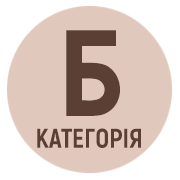ABOUT THE NATIONAL COMPONENT IN THE GALICIAN MUSICAL THEATER OF THE LATE 19TH AND EARLY 20TH CENTURY
Keywords:
musical theater, national identity, operaAbstract
The article violates the problem of formation of national consciousness in the Galician musical theater of the late 19th and early 20th century. The leading forms of culture of the Russian and Austro-Hungarian empires, in particular the genre of the opera, which became the representative of the "national style" in contemporary European musical art, were analyzed. The dominant developing trends of the musical theater under the rule of the Austro-Hungarian monarchy are explored. The dominant developing trends of the musical theater under the rule of the Austro-Hungarian monarchy are studied. It is noted that in the then Austrian culture the opera was beyond the main genre canon, which is associated with the Biedermeir era. In this context, Galician Musical Theater is considered and issues of its genre priorities are covered. The object of the research is the opera of A. Vakhnyanyn and D. Sichynsky as works expressing the national ideology of the people and its traditions. The opera "Kupalo" by A. Vakhnyanyn is analyzed from the point of view of national history. The composer considers the national component in the context of the ancient rite. In "Kupalo" there are also influences of Italian and French opera theaters. It is noted that this opera is close to the west early romantic opera. The D. Sichinsky’s "Roksolana" represents the type of historical melodrama in the national musical theater of the early twentieth century. The basis of her plot is a love drama, the birth of which is associated with a romantic mystery. The structure of the work is due to the attraction to the "great opera", with a spectacular and holistic in dramatic aspect the great prologue in which the composer uses allegorical figures.
References
Ассман А. Простори спогаду. Форми трансформації культурної пам’яті / пер. з нім. К. Дмитренко, Л. Доронічева, О. Юдін. К.: Ніка-Центр, 2012. 440 с
Горак Я. Анатоль Вахнянин і становлення музичного професіоналізму в Галичині (друга половина ХІХ – початок ХХ ст.). Львів: Сполом, 2009. 232 с.
Лист М. В. Лисенка до І. С. Нечуя-Левицького від 22 липня 1874 р. // Лисенко М. В. Листи / упорядкув., прим. та комент. О. Лисенка. Київ : Мистецтво, 1964. С. 113–116.
Лобанкова Е. Национальные модели в русской музыкальной культуре на рубеже ХІХ – ХХ веков (на примере творчества Н. А. Римского-Корсакова и А. Н. Скрябина): дисс… кандидата искусствоведения: 17.00.02. Москва, 2009. 285 с.
Лобанова М. Западноевропейское музыкальное барокко: проблемы эстетики и поэтики. Монография. Москва: Музыка, 1994. 322 с. 6. Людкевич С. Анатоль Вахнянин. У 20-літні роковини смерті. Станіслав Людкевич. Дослідження, статті, виступи / ред. Зеновія Штундер. Т. 1. Львів: Дивосвіт, 1999. 495 с.
Музыка Австрии и Германии ХІХ века. Книга первая / Под общ. ред. Т. Э. Цытович. М.: Музыка, 1975. 511 с.
Нудьга Г. Народний поетичний епос України. Думи. К.: Рад. письменник, 1969. 354 c.
Старик В. Від Сараєва до Парижа. Буковинський Interregnum 1914–1921. Чернівці: Прут, 2009. 184 с.
Франко І. Наш театр. Твори. В двадцяти томах. Том ХVI. Літературно-критичні статті. Київ: Державне видавництво художньої літератури, 1955. С. 178–190.
Франко І. Русько-український театр (Історичні обриси). Твори. У двадцяти томах. Том ХVI. Літературно-критичні статті. Київ: Державне видавництво художньої літератури, 1955. С. 209–250.
Чаки М. Идеология оперетты и венский модерн / пер. с нем. В. Ерохина. Санкт-Петербург: Издательство им. Н. И. Новикова, 2001. 348 с.
Чарнецький С. Історія українського театру в Галичині. Нариси, статті, матеріали, світлини. Львів: Літопис, 2014. 584 с.
Якубяк Я. В. Микола Лисенко і Станіслав Людкевич : монографія. Львів : ДВЦ НТШ, 2003. 264 с.







